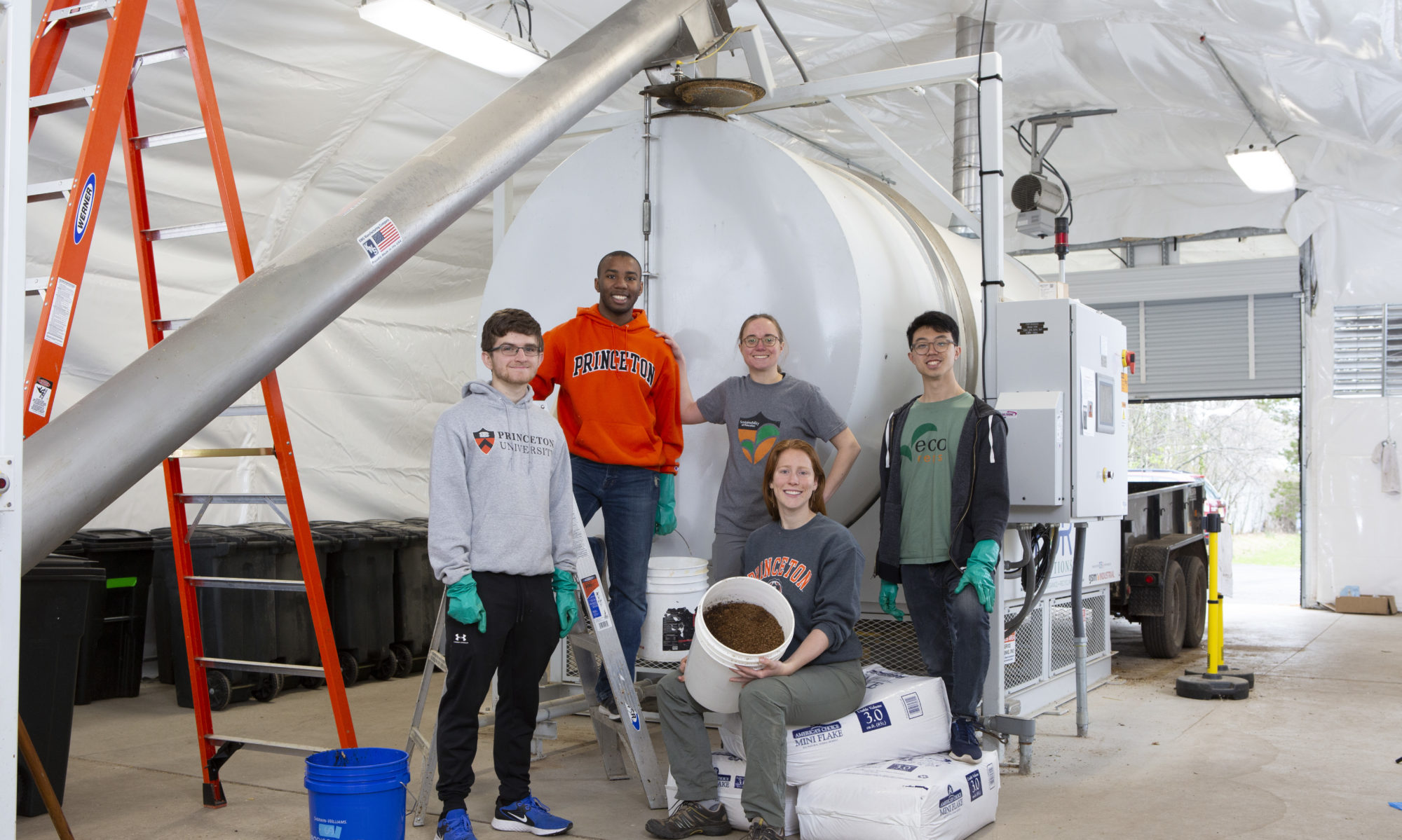Happy 4th day of International Compost Awareness Week!
Today’s post we are pleased to share a Q&A about home composting with Ted Borer.
By day, Ted is an engineer who serves as Princeton University’s Energy Plant Director. He oversees day to day operations and long-term planning to achieve a carbon-neutral campus. Ted is equally as passionate about sustainability in his personal life. He bicycles to work 12 months a year and follows a plant-based diet. His home includes everything from shower drain heat recovery to a chicken coop and an area for composting!
Read more about Ted’s composting journey and process, as well as his advice for new backyard composters below:

- When did you start composting and why?
My wife and I started composting in 1989. Compost bins were one of the first things I built when we bought our first house. There were a lot of trees and shrubs and we both enjoy gardening. We wanted to manage our yard waste and food scraps and re-incorporate them into the gardens.
- What do you compost?
Yard waste and non-meat, non-fat food scraps: Sticks, branches, leaves, garden weeds, bark from firewood, sawdust, sometimes grass clippings, poultry and rabbit bedding/waste, food scraps with no meat or dairy.

- What benefits have you’ve seen as a result of composting or applying compost?
First is joy! It’s really fun to see the temperature rise and fall as I change the carbon/nitrogen (brown/green) balance or mix up the piles, or run things through a chipper/shredder to break them down and aerate them, or add water. It’s a fascinating process to observe. It’s part of an endless cycle of life-death-decay-renewal.
Second, it reduces the amount of waste that leaves our property. Ideally, I’d like nothing organic to leave our property. We have a ways to go before achieving that goal. But we certainly don’t get rid of any yard waste and essentially zero food scraps. It’s too valuable.
Third, like much of this area, our yard has very little topsoil and is mostly clay and shale. By mixing in finished compost, I can lighten any soil and plants will grow better in it. Lighter soil absorbs more water instead of letting rain sheet-flow into a creek; taking nutrients downstream with it. When I top-dress or mulch shrubs with compost, they grow faster and are more healthy.

- What advice do you have to anyone looking to start composting at home?
You don’t have to do everything all at once. Starting composting can be done with little time and effort – but it grows over time as you learn more! Maybe start with kitchen scraps and leaves and a small “compost tumbler”. But, be aware that composting works better and is more stable the larger you go. I built a three-compost-bin system and use a pretty large chipper-shredder to manage all our yard waste and animal bedding. The bins are 48” x 48” x 48”. I cycle from bin-to-bin as the compost breaks down.
If you do want to start on a small scale, learn about vermiculture! A tiny pile of kitchen scraps in the back yard is not a “composting system”. It will just attract animals.
Get a book like: Let It Rot!: The Gardener’s Guide to Composting (Third Edition) (Storey’s Down-To-Earth Guides): Campbell, Stu: 9781580170239: Books: Amazon.com
Thanks for reading!
Stay tuned for another post on backyard composting tomorrow, featuring the Forbes Garden!


Great read!